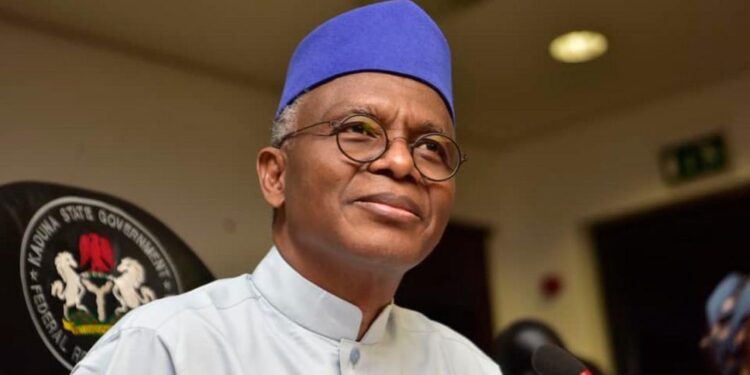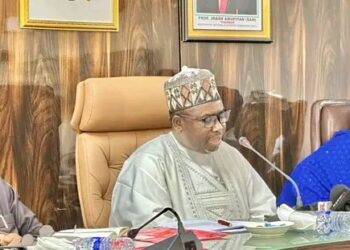The Joint Action Movement of Nigeria (JAMN), on Friday, criticized former Kaduna State Governor Nasir El-Rufai for his intervention in the ongoing dispute between National Security Adviser Nuhu Ribadu and Hajiya Najatu Mohammed.
The group further accused El-Rufai of attempting to rewrite history, saying that after inflicting hardship and humiliation on a large section of Kaduna State’s population, he now seeks to reinvent himself as a champion of the North.
In a statement signed by Chairman Lawal Sani Ningi and Secretary Deborah Kantiok, JAMN described El-Rufai’s remarks as reckless, misleading, and self-serving, accusing him of prioritizing political manipulation over truth and accountability.
At the center of the controversy are serious allegations made by Najatu Mohammed in a viral video, where she claimed that Ribadu, during his tenure as EFCC Chairman, sought to block the political aspirations of Bola Tinubu, George Akume, and Orji Kalu, whom she described as Nigeria’s most corrupt governors. Ribadu has since demanded evidence, warning of legal consequences for unverified accusations.
He said: “El-Rufai’s intervention is particularly alarming given the backdrop of his own legal troubles. Reports indicate that he is facing pending accusations of financial irregularities from the Kaduna State House of Assembly.
“His public support for Najatu Mohammed appears strategically timed, potentially serving as a distraction from his own legal challenges. By aligning himself with a controversial claim, El-Rufai risks further eroding his credibility and prioritizing political expediency over truth and accountability.
“The Joint Action Movement of Nigeria is deeply concerned about the implications of El-Rufai’s actions, which reflect a broader pattern of behavior marked by betrayal, inconsistency, and a lack of ethical integrity.
“His tenure as governor of Kaduna State was marred by accusations of dehumanization and the arbitrary dismissal of individuals, actions that starkly contradict his self-proclaimed role as a defender of the “cultured North.” Such conduct is not that of a statesman but of a cynical politician seeking to manipulate public opinion for personal gain.
“The embarrassment of El-Rufai seeking a ministerial appointment, only to have his candidacy withdrawn amid ethical concerns, underscores his refusal to accept accountability for his questionable record.
“Instead of reflecting on his past actions, he has chosen a path of confrontation and unsubstantiated claims against the very administration that deemed him unfit for public service. This behavior reeks of bitterness and desperation, as he attempts to regain relevance through manufactured outrage.
“El-Rufai’s self-proclaimed role as a messiah for the North is particularly troubling. After inflicting hardship and humiliation on a significant segment of Kaduna State’s population, he now attempts to reposition himself as a benevolent leader.
“This cynical attempt to rewrite history and evade responsibility is a clear demonstration of his lack of integrity. The people of Kaduna State, and indeed the wider Nigerian public, are not easily deceived. The memory of his governance and its consequences remains vivid, rendering his current posturing hollow and unconvincing.
“Nasir El-Rufai’s intervention in the Ribadu-Mohammed dispute epitomizes his broader political character, characterized by a lack of integrity, a penchant for betrayal, and a demonstrable inability to engage in constructive dialogue.
“His history of inconsistent allegiances, documented ethical failings, and inflammatory rhetoric disqualifies him from offering any meaningful commentary on matters of public importance. His attempts to position himself as a moral authority or defender of any group should be treated with skepticism, given his demonstrable lack of credibility and the weight of his past actions.
“The Joint Action Movement of Nigeria urges the public to critically assess El-Rufai’s pronouncements, viewing them not as insightful analysis but as the desperate cries of a discredited figure clinging to irrelevance.
“We call upon the citizens of Nigeria to focus on substantive issues and engage in discourse that is grounded in truth and accountability, unburdened by the noise of self-serving rhetoric. The future of our nation demands leaders who prioritize integrity and responsibility over personal ambition.”











